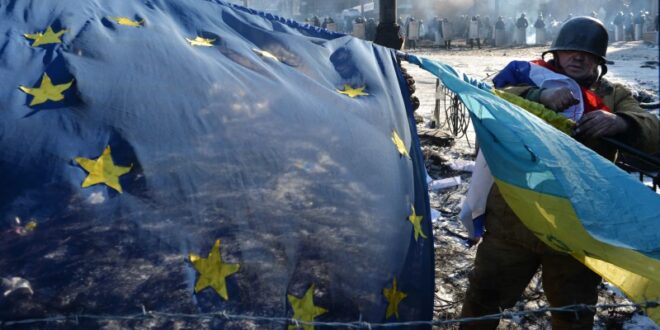The West’s historical anxieties have made it impossible to come to terms with the war’s reality.
On the first day of Russia’s all-out war against Ukraine, German Finance Minister Christian Lindner met with then-Ukrainian ambassador to Germany Andriy Melnyk. As Melnyk later recounted, Lindner didn’t simply decline to supply Ukraine with weapons or disconnect Russia from the SWIFT payment system, as Ukraine had a “few hours left” of its sovereignty. It became clear he was preparing to discuss the future of a Russian-occupied Ukraine with the puppet government that would be installed by the Kremlin. This reflected a general attitude: The West at the time thought it would be easier if Ukraine simply surrendered.
An uncomfortable truth about Russia’s genocidal war against Ukraine, so plainly obvious that it’s usually overlooked, is that it became possible not only because it was conceived and carried out by the aggressor but also because it was allowed by bystanders. The biggest blow to democracy on a global scale was not the war itself but the fact that—despite all “never again” claims—European and Western countries in general agreed and accepted beforehand that another European nation might be deprived of its sovereignty, freedom, and independent institutions, and it might find itself militarily occupied. (If this isn’t how they felt, then they wouldn’t have evacuated their embassies in Kyiv.)
So far, the West has been having a good war in Ukraine—above all, because its present course still allows the West to behave as if the war is not its own. The West’s political discourse, rationalized in the ivory tower language of non-escalation and nonprovocation, is still basically about how best to ensure that exposure to the continued risk of military aggression and death is restricted to Ukrainians. In a basic sense, the West has always been afraid of a Ukrainian victory.
 Eurasia Press & News
Eurasia Press & News




